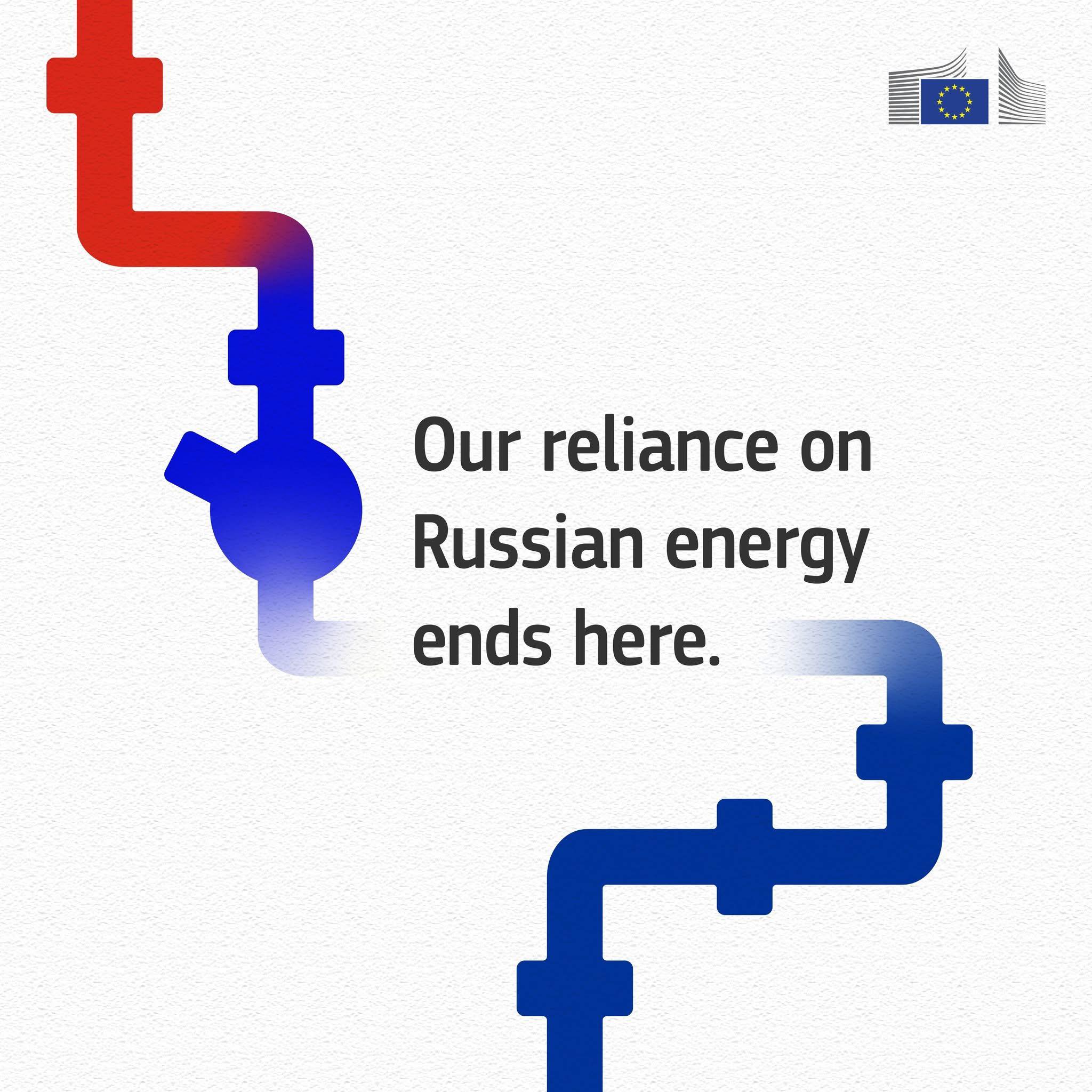The EU Council Identifies Energy Security as a Key Priority for the European Union and Supports Ukraine's Energy Recovery

In response to Russia’s aggression against Ukraine in February 2022, the European Commission launched the REPowerEU Plan to reduce Europe’s dependence on Russian energy through improved energy efficiency, development of renewable energy, and diversification of supply sources. This strategy has already helped reduce gas imports by over 60 billion cubic meters annually. However, as of 2024, the EU still imported 52 billion cubic meters of Russian gas (approximately 19% of total gas imports), 13 million tons of oil, and more than 2,800 tons of enriched uranium. This dependency on Russian energy resources poses a serious threat to the Union’s security and economy, as Russia continues to systematically use energy supplies as a tool of political pressure.
At the Energy Council meeting, 25 Member States endorsed conclusions emphasizing the urgent need to end reliance on Russian fossil fuels. This should be achieved through diversification of supply sources, acceleration of renewable energy development, and increased energy efficiency.
A special focus was placed on supporting Ukraine in rebuilding its energy system, which has suffered extensive destruction due to the war. A key step in this process is the synchronization of Ukraine’s electricity grid with the European grid, which will significantly enhance the country’s energy independence and resilience.
The Council conclusions also highlight the role of the European Commission in assisting both Member States and candidate countries with the implementation of European standards, streamlining of regulatory procedures, and ensuring financial support for the modernization of energy infrastructure.
Additionally, the European Commission has proposed a legislative act aimed at gradually phasing out imports of Russian gas, oil, and coal by the end of 2027. This initiative is a key component of the REPowerEU roadmap and includes:
A ban on importing Russian gas under new contracts starting January 1, 2026, termination of imports under short-term contracts by June 17, 2026, and a gradual end to imports under long-term contracts by the end of 2027 (with exceptions for non-EU neighboring countries).
A ban on long-term contracts for services at LNG terminals controlled by Russian companies, in order to redirect capacity to alternative suppliers.
An obligation for Member States to submit detailed diversification plans with clear measures and timelines.
Enhanced transparency, monitoring, and traceability of gas origin on EU markets to ensure effective enforcement of the ban.
Emergency response mechanisms by the European Commission in case of threats to supply security.
We need a coordinated international effort to support the reconstruction, decentralization, and decarbonization of Ukraine’s energy systems. This includes not only material and financial aid, but also structural support for transforming Ukraine’s energy sector and legal system, through accelerated regulatory alignment with the EU, in light of Ukraine’s candidate status.
The pan-European course toward energy independence and security not only strengthens all of Europe but also enhances Ukraine’s energy potential, laying a solid foundation for its full integration into the unified European energy space.